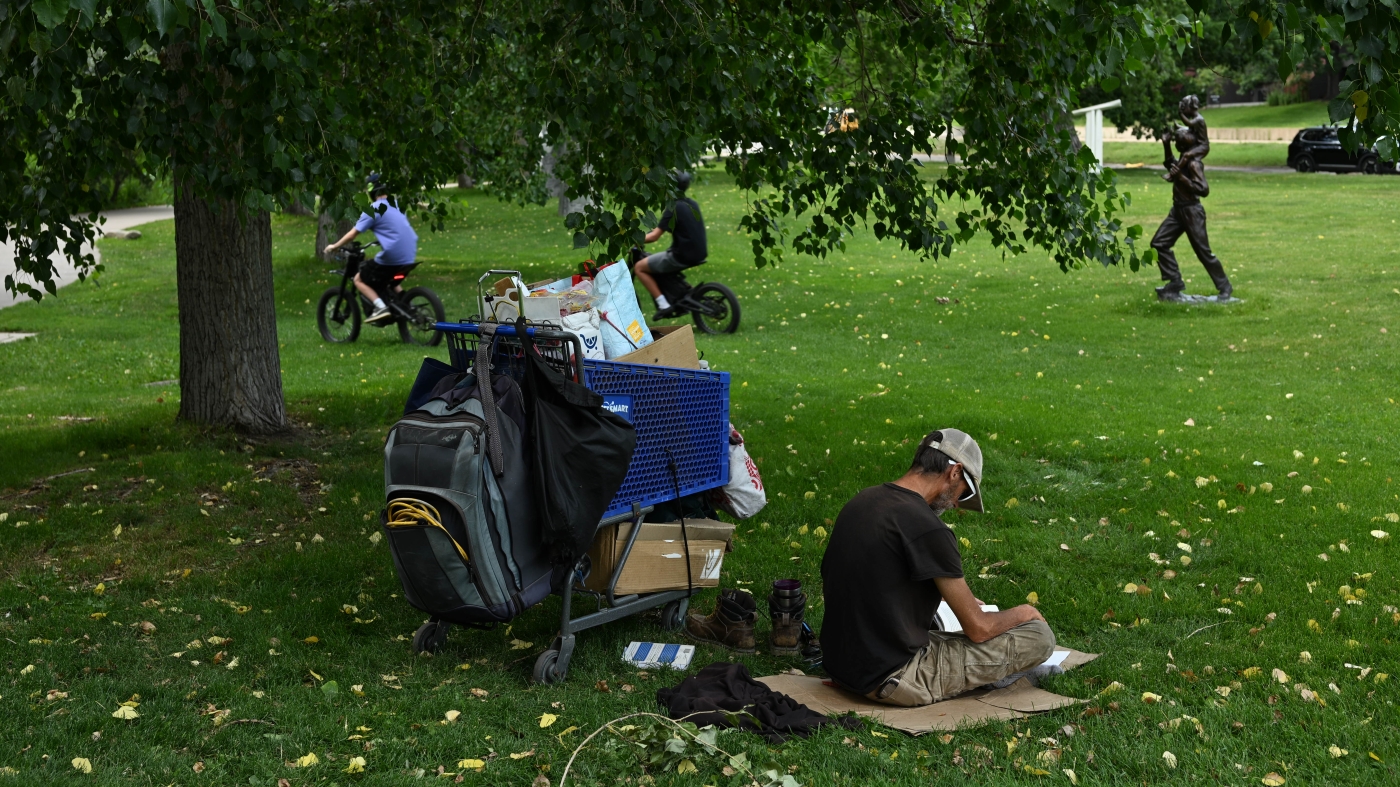Fulfilling a campaign promise, President Trump has signed an executive order that seeks to overhaul the way the U.S. manages homelessness.
The order signed Thursday calls for changes to make it easier for states and cities to remove outdoor encampments and get people into mental health or addiction treatment. That includes involuntary civil commitment for those “who are a risk to themselves or others.”
“Endemic vagrancy, disorderly behavior, sudden confrontations, and violent attacks have made our cities unsafe,” the order states.
Critics decry the shift toward pushing people into treatment
The White House action also seeks to shift federal funding away from longtime policies that sought to get homeless people into housing first, and then offer treatment. Instead, it calls for prioritizing money for programs that require sobriety and treatment, and for cities that enforce homeless camping bans.
It also directs the departments of Health and Human Services, Housing and Urban Development, and Transportation to assess federal grant programs and prioritize places that actively crack down on illicit drug use, urban camping and loitering, and urban squatting “to the maximum extent permitted by law.”
Critics said the sweeping action does nothing to solve homelessness, and could make it worse.
“This executive order is forcing people to choose between compassionate data driven approaches like housing, or treating it like a crime to have a mental illness or be homeless,” said Jesse Rabinowitz with the National Homelessness Law Center.
“Institutionalizing people with mental illness, including those experiencing homelessness, is not a dignified, safe, or evidence-based way to serve people’s needs,” Ann Oliva with the National Alliance to End Homelessness said in a statement.
Trump’s order also calls on the Substance Abuse and Mental Health Services Administration to defund addiction programs that include “harm reduction.” This is certain to disrupt frontline health care programs that work to reduce overdoses from fentanyl and other street drugs.
Addiction experts consider harm reduction, including programs that provide clean needles and other paraphernalia, to be an essential part of helping people survive addiction. Trump’s order repeats the claim that such programs encourage drug use, an argument disproven by years of research, including by federal scientists at the Centers for Disease Control and Prevention.
Thursday’s White House action builds on a landmark Supreme Court ruling last year that said cities can punish people for sleeping outside even if they have nowhere else to go. Since the high court ruling, well over 100 cities across more than two dozen states have passed or strengthened bans on homeless camping. More may now feel pressure to do so if that makes it easier to get federal funding.
The order reflects a conservative backlash to federal policies
For two decades there was bipartisan support for getting people off the streets and into housing first, then offering them mental health or addiction treatment. Supporters say that approach has a proven track record of keeping people off the streets. And they say a massive shortage of affordable housing is a key driver of homelessness.
But there’s been a growing conservative backlash to that as homelessness rates have steadily risen to record levels. The annual count of homeless people in the U.S. last year showed more than 770,000 people living in shelters or outside, up 18% from the year before.
“This is a huge step,” said Devon Kurtz with the conservative Cicero Institute, which has been lobbying for many of the items in the order.
He contends that the housing first strategy made homelessness worse by not doing enough for those who need treatment. Trump’s order calls for ending support for Housing First policies that don’t promote “treatment, recovery, and self-sufficiency.”
“This is really that crucial safety net at the bottom to make sure that [homeless people] don’t continue to fall through the cracks and die on the street,” Kurtz says.
The conservative agenda Project 2025 also called for ending housing first. Earlier this year, the Trump administration gutted the U.S. Interagency Council on Homelessness — the small agency that had coordinated homeless policy across the government and had been an advocate for housing first policies.
At the end of day, it’s called “freedom”. You can’t force people who are homeless by choice not to be homeless, nor can you involuntarily commit them to mental institutions so as to get them off the streets.


